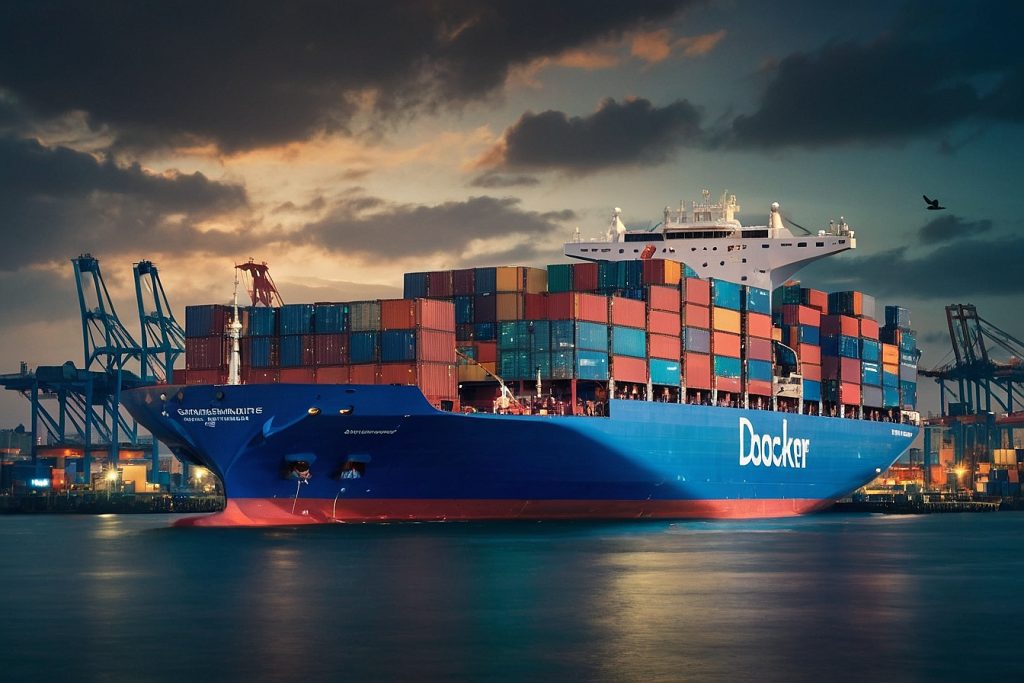
Docker vs. Kubernetes: Decoding the Container Titans
In the dynamic world of software development, two names often dominate the conversation around containerization and orchestration: Docker and Kubernetes. Both have become cornerstones in the DevOps toolkit, but they serve different purposes, often leading to confusion among newcomers. If you’re embarking on your DevOps journey, understanding the nuances between Docker and Kubernetes is crucial for architecting efficient, scalable applications. Let’s dive into the world of these container titans, comparing and contrasting their features, use cases, and how they can work together to power your development pipeline.
Introduction to Containerization with Docker
Docker, introduced in 2013, revolutionized the way developers build, ship, and run applications by popularizing containerization. A container, as Docker introduced, is a lightweight, standalone package that contains everything needed to run a piece of software, including the code, runtime, libraries, and environment variables. This means applications can run reliably in different computing environments, from a developer’s laptop to a test environment, and finally, in production, on-premises, or in the cloud.
Key Features of Docker:
- Portability: Docker containers can run on any machine that has Docker installed, eliminating the “it works on my machine” problem.
- Lightweight: Containers share the host system’s kernel and are much lighter than virtual machines (VMs).
- Docker Hub: A vast repository of Docker images that you can use as the base for your applications.
- Docker Compose: A tool for defining and running multi-container Docker applications.
Kubernetes: Mastering Container Orchestration
While Docker focuses on containerization, Kubernetes (introduced by Google in 2014) addresses the challenge of managing multiple containers across a cluster of machines. It’s an open-source platform designed for automating deployment, scaling, and operations of application containers, allowing for easy management of tens to thousands of containers.
Key Features of Kubernetes:
- Service Discovery and Load Balancing: Kubernetes can expose a container using the DNS name or their own IP address. If traffic to a container is high, Kubernetes is able to load balance and distribute the network traffic so that the deployment is stable.
- Storage Orchestration: Automatically mount a storage system of your choice, whether from local storage, a public cloud provider, or a network storage system.
- Automated Rollouts and Rollbacks: You can describe the desired state for your deployed containers using Kubernetes, and it can change the actual state to the desired state at a controlled rate.
- Self-healing: Kubernetes restarts containers that fail, replaces containers, kills containers that don’t respond to your user-defined health check, and doesn’t advertise them to clients until they are ready to serve.
Docker and Kubernetes: A Comparative Analysis
While Docker and Kubernetes might seem like competitors at first glance, they actually cater to different aspects of the development and deployment lifecycle. Here’s how they compare:
Scope and Focus
- Docker is primarily focused on containerization – the creation, deployment, and running of containers.
- Kubernetes is an orchestration system for Docker containers (among others) that focuses on the deployment, scaling, and management of containerized applications across a cluster of machines.
Deployment Complexity and Scalability
- Docker, with Docker Swarm (Docker’s own container orchestration tool), provides a simpler, more straightforward way of scaling out a containerized application, but it might lack some of the advanced features needed for larger, more complex deployments.
- Kubernetes is designed to handle massive scale, but with that capability comes complexity. It offers more features and flexibility but requires a steeper learning curve.
Networking
- Docker networks containers to communicate with each other and the outside world through defined network interfaces.
- Kubernetes offers a more complex networking model, where each pod (a group of one or more containers with shared storage/network) gets its own IP address, making it easier to manage microservices and service discovery.
Storage
- Docker provides volume support to persist data but managing this across multiple containers and their lifecycle can be complex.
- Kubernetes provides a more sophisticated storage system, supporting various storage backends and offering persistent storage for stateful applications.
Ecosystem and Community Support
- Docker has a vast, active community with a rich ecosystem of tools and plugins. Docker Hub, the public repository for Docker images, simplifies sharing and collaboration.
- Kubernetes, while younger, has quickly grown to have one of the largest and most active communities in the open-source world. It’s supported by major cloud providers with managed services (e.g., Google Kubernetes Engine, Amazon EKS, and Azure AKS).
Use Cases
- Docker is ideal for developers looking to containerize their applications, ensuring consistency across environments, and simplifying the development lifecycle.
- Kubernetes is suited for organizations looking to deploy, scale, and manage complex applications across clusters of machines, ensuring high availability, scaling, and zero-downtime deployments.
How Docker and Kubernetes Work Together
Rather than viewing Docker and Kubernetes as either-or options, it’s more accurate to see them as complementary technologies. Docker provides the containerization technology to package and run applications, while Kubernetes offers the orchestration platform to manage those containers at scale. In practice, you can use Docker to create and manage individual containers, and then use Kubernetes to automate deploying, scaling, and operating those containers across a cluster of machines.
Conclusion
Understanding Docker and Kubernetes is fundamental for any DevOps professional. Docker simplifies the creation and deployment of applications in containers, offering a consistent environment from development to production. Kubernetes takes these containers and efficiently manages them at scale, handling the complexities of distributed systems seamlessly.
As you delve into the world of DevOps, embracing both Docker and Kubernetes will equip you with the tools necessary to deploy and manage applications efficiently, embracing the principles of modern, scalable, and resilient software architecture. The journey from containerization with Docker to orchestration with Kubernetes represents a path toward more agile, reliable, and scalable software development practices, crucial for any aspiring DevOps professional.
Related Links:
Introduction to Kubernetes – https://felixrante.com/kubernetes-the-backbone-of-modern-applications/
Introduction to Docker – https://felixrante.com/docker-a-crucial-tool-for-modern-software/